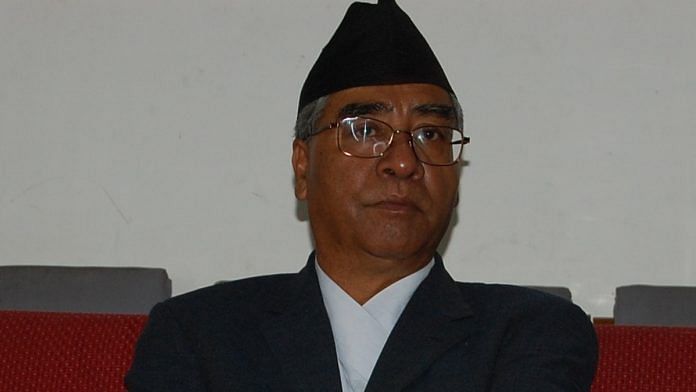New Delhi: India is believed to be examining a diplomatic note sent by Nepal regarding an incident that took place more than a month ago, when a Nepali man fell into the Mahakali river near the two countries’ border in the state of Uttarakhand, ThePrint has learnt.
The Nepal government Monday sent the diplomatic note to the Indian embassy in Kathmandu for a response. The incident had taken place on 30 July when 33-year-old Jaya Singh Dhami of Darchula district of Nepal fell into the Mahakali River while crossing it with the help of a ‘tuin’ — a crude form of cable crossing.
According to Nepali media reports citing witnesses, the man was killed because personnel of India’s Sashastra Seema Bal (SSB) who were posted there removed the log on which the tuin was tied, after which the man fell into the river.
Sources told ThePrint, Prime Minister Sher Bahadur Deuba of the Nepali Congress party sent the note to India after so many days because he had come “under pressure” from his coalition partners in the Nepal Communist Party.
At present, PM Deuba himself holds the foreign and defence portfolios in Nepal’s government. He has also set up a committee to investigate the Darchula incident.
Last week, while addressing a query on the Darchula incident, Arindam Bagchi, spokesperson for the Ministry of External Affairs, said this was an “allegation” made against India, and that New Delhi had “not got any such information”.
Also read: As Nepal seeks stability under new PM Deuba, there is hope he will ‘balance ties’ with India
Deuba’s stance towards India
After the ousting of his main opponent and former prime minister KP Sharma Oli in July, Deuba has been depending heavily on his allies from the Nepal Communist Party, such as former PMs Pushpa Kamal Dahal ‘Prachanda’ and Madhav Kumar Nepal, among others, to keep his government stable, sources said.
Since coming to power after much political jostling with Oli, who took an extreme anti-India stance throughout his second tenure, Deuba intends to “clear the misunderstandings” that have crept into the bilateral ties between Kathmandu and New Delhi, the sources said.
The sources added that Deuba believes in order to secure his party’s position — it has only 61 seats in the 275-member House of Representatives in Nepal’s parliament — he will need India’s support.
On Sunday, the Home Ministry of Nepal issued a directive mentioning that the Deuba administration will not allow anyone in Nepal to carry out any anti-India protests, as it is a friendly country. This directive came after some people in Nepal burnt the effigies of Prime Minister Narendra Modi. The Nepal government called the protests a “reprehensible and disgraceful” action.
Deuba has also come under considerable criticism, sources said, for remaining silent on reports of the Indian choppers being seen hovering in Nepal’s skies.
‘Don’t see the note negatively’
Vijay Kanta Karna, professor of political science at Nepal’s Tribhuvan University and a political analyst, told ThePrint that PM Deuba assumed the role under difficult circumstances, and thus, he is “not in a very comfortable position”, as he is maintaining a delicate coalition.
“This is a coalition against Oli. The government does not have a concrete base… So, we are bound to see contradictory policies of different parties. Deuba wants friendly ties with India. But some people within the coalition do not want him to be seen as too friendly with India,” Karna said.
“Anything that happens in Darchula becomes a political issue. In this recent incident, investigation is happening, and this has become a serious issue in Nepal. This has gained more attention because PM Deuba himself hails from the area where the incident took place,” the professor added.
Karna also said India should not view the note negatively; it should respond to it and try to resolve the issue in a friendly manner.
“The note should not be taken negatively. If something has happened, then they should sort this out in a friendly way. The (Nepal) PM is trying to balance all views within the new coalition,” he said.
(Edited by Shreyas Sharma)
Also read: India, Nepal sign MoUs to rebuild over 100 health & heritage projects damaged in 2015 quake



